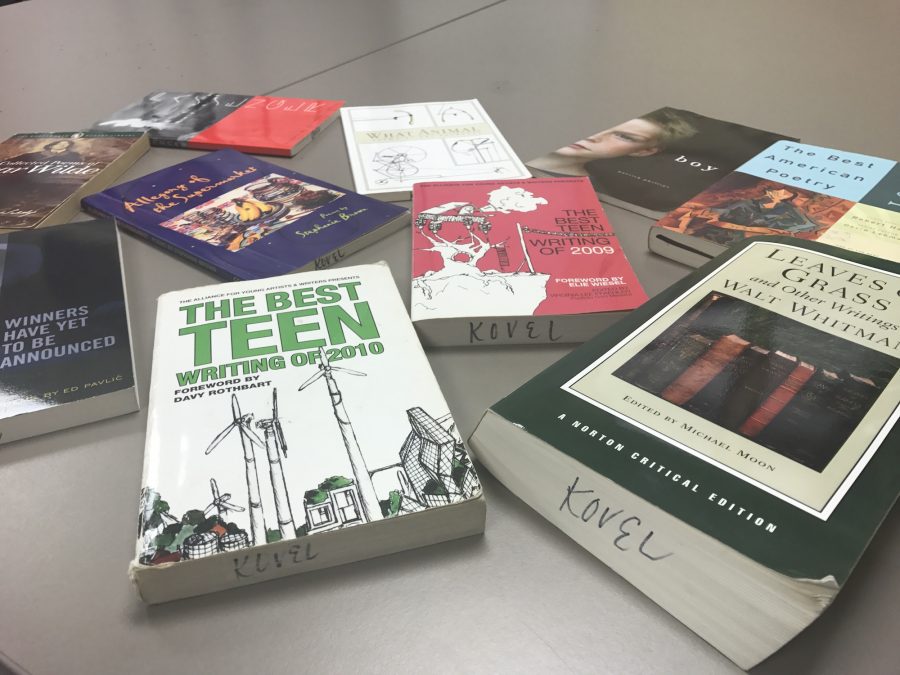Poetry submissions: do they help or hurt a young poet’s career?
The poetry books sprawled out across the table, showing that published authors come in all ages, shapes, and sizes.
February 7, 2017
The promise of monetary return entices young minds, but should they really waste time submitting their precious work instead of writing more? Submissions may start careers, but they may also instill a false sense of hope into eager youth.
The diverse sphere of magazines and newspapers offering chances for authors to submit pieces may seem overwhelming, but one can easily navigate through the good, the bad, and the outright ridiculous. A good place to start sending work, a publication like Rookie Mag, aims their pieces at teenagers, and encourages novice writers and artists to submit their work.
The responses usually take a month to process, and students could very well spend the excruciating 30 days it takes to receive a response writing more. Rookie pays for submissions, varying by the type of work and the category, but regardless of the work they significantly help with the editing process. Rookie offers an outlet for new writers to share their work without judgement, in an atmosphere designed especially for young minds and fresh faces.
Older news sources and literary magazines, such as The New Yorker, make it particularly difficult to get a piece published if the author lacks experience. Their cabinet of notable authors that regularly submit their pieces present strong competition for new writers, especially young writers.
The established news sources also do not aim for a particularly younger crowd, but they do make a very big deal of new and noteworthy authors, so the hard work may in fact pay off. Still, for the majority of hopeful teen writers, the process wastes time and just about fifteen dollars out of pocket.
Start somewhere small, like a small poetry magazine that publishes work quarterly or monthly. They can give great advice and a lot of helpful editing, so taking the jump to submit writing may turn out wonderfully. With a semi-substantial monetary return and advice from professionals, take the risk and submit work.







